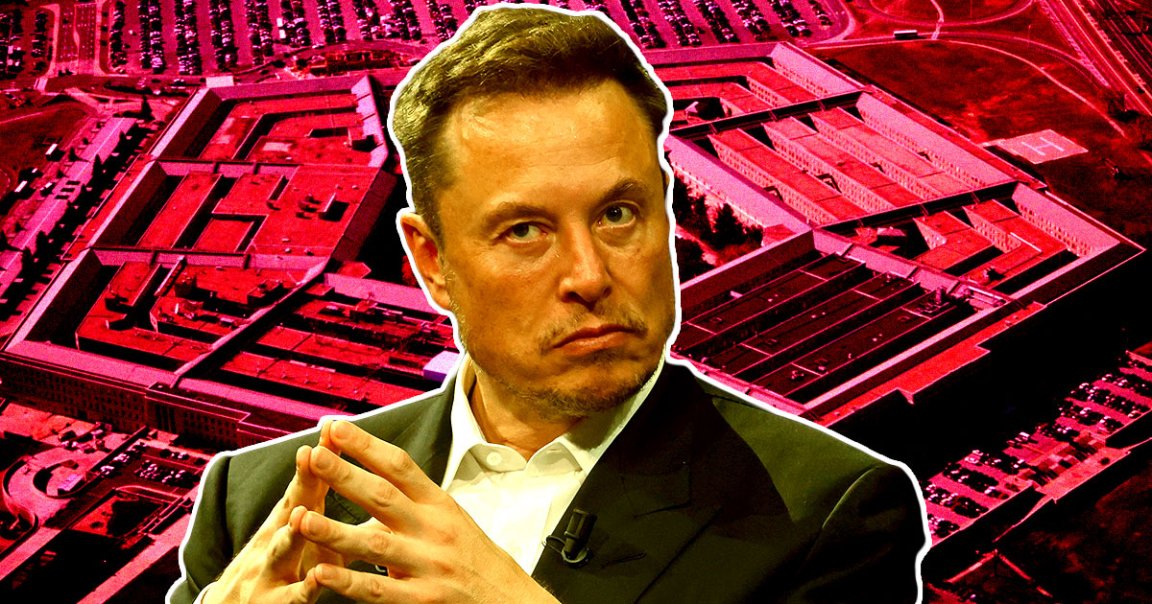
SpaceX’s Starlink satellite terminals have quickly become an essential tool in the arsenal of soldiers on the front lines in Ukraine. The small dishes allow them unfettered lines of communication, despite Russia’s attempts to dismantle their networks.
The development has thrown SpaceX CEO Elon Musk right into the middle of a political crisis — worrying, considering the mercurial CEO’s unpredictable and often brash nature.
And that has Pentagon officials quaking in their boots, as journalist Ronan Farrow writes in a sprawling new feature for the New Yorker.
“Even though Musk is not technically a diplomat or statesman, I felt it was important to treat him as such, given the influence he had on this issue,” former Under-Secretary of Defense for Policy at the Pentagon Colin Kahl told Farrow.
Musk’s stance on the war in Ukraine has changed considerably since SpaceX initially started handing out terminals to soldiers in early 2022.
At first, his commitment to supporting the Ukrainian cause was palpable, seemingly celebrating the delivery of hundreds of terminals.
But over the coming months, and around 20,000 terminals later, Musk became weary of the costs SpaceX was accruing, tweeting that it was “unreasonable” for the company to keep supporting the growing data usage.
His purported meetings with Russian president Vladimir Putin also raised eyebrows, crystalizing Pentagon officials’ concerns over Musk’s involvement in the war.
At the time, Starlink communications broke down, throwing Ukrainian lines into chaos. According to the New Yorker‘s sources, the outages were likely the result of SpaceX intentionally cutting the cord via geofencing.
Meanwhile, in a particularly brazen Twitter thread on October 3, Musk suggested that Ukraine should surrender and give up Crimea as a peaceful outcome of the war.
“My inference was that he was getting nervous that Starlink’s involvement was increasingly seen in Russia as enabling the Ukrainian war effort, and was looking for a way to placate Russian concerns,” Kahl told Farrow.
Roughly a week after his controversial outpouring on Twitter, Musk denied having ever spoken to Putin about Ukraine, saying he’d only spoken to Putin roughly “18 months ago,” and that the “subject matter was space.”
Kahl, however, has a strikingly different recollection of events, with Musk reportedly looking at a Starlink activity map on his laptop during a meeting.
“This was, like, three minutes before he said, ‘Well, I had this great conversation with Putin,'” Kahl told Farrow. “And we were, like, ‘Oh, dear, this is not good.'”
Fortunately, for the front lines in Ukraine, Starlink connectivity has largely been stable with no major interruptions. On October 15, a clearly annoyed Musk announced that SpaceX would “just keep funding Ukraine govt for free” despite SpaceX “still losing money,” a promise he has seemingly upheld ever since.
And it’s not just Musk’s tenuous relationship with Russia. SpaceX’s decision to provide Ukrainian soldiers with Starlink has also come to alienate China — which is complicated, considering Musk’s close business ties with the country. Tesla has made considerable investments in China and runs a massive Shanghai-based plant.
The very existence of Musk’s Starlink constellation has even raised concerns among Chinese officials, particularly when it comes to the possibility of unrestricted connectivity within the country’s borders.
Seemingly in response, China has since announced it’s working on its own competing satellite network, which could allow it to rival Starlink’s.
“The Starlink constellation has finally shown its military colors in the Russia-Ukraine conflict,” one Beijing academic familiar with the project, told The Washington Post back in April. “The focus now is to accelerate the development of China’s own constellation… and explore defensive measures against Starlink-type foreign satellites.”
In short, Musk’s tremendous influence on the international geopolitical stage has clearly rattled world powers, forcing them to contend with a billionaire business magnate the likes of which the world has never seen before.
Yet despite becoming a “hyper-exposed pop-culture figure,” the scope and nature of his “power are less widely understood,” Farrow wrote.
“Living in the world we live in, in which Elon runs this company and it is a private business under his control, we are living off his good graces,” another Pentagon official told Farrow. “That sucks.”
More on Musk and Russia: White House Freaked Out Over Elon Musk’s Selfie With Top Russian Propagandist